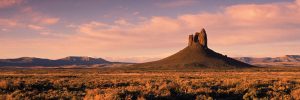
Lisa McGee
Executive Director
lisa@wyomingoutdoorcouncil.org
307.332.7031 ext. 230
After graduating from Miami University in Ohio with a bachelor’s degree in anthropology, Lisa worked as a ranger naturalist in both Grand Teton and Yellowstone National Parks. In 2004, she graduated with honors from the University of Wyoming College of Law, where she focused on public lands and natural resource law. She served as a law clerk for a superior court judge in Anchorage, Alaska before returning to Wyoming in June 2005 to direct the Outdoor Council’s national parks and forests program. The majority of Lisa’s work has focused on oil and gas leasing and development proposals on the Bridger-Teton National Forest’s Wyoming Range. Lisa became the Outdoor Council’s program director in 2013, a position she held for nearly four years before becoming Executive Director in late 2017. She lives in Jackson with her husband and son.
My Recent News
Update on the last of the wild film screenings
May 22, 2023
Thanks to all of you who joined us in Riverton, Rock Springs, and Laramie for the first three screenings of Last of the Wild: A Red Desert Story. The turnout in […]
read moreMessage from the director: A renewed commitment for 2023
December 22, 2022
As the year draws to a close, I hope you’ll join me to reflect on some of the good work we accomplished together in 2022. We were your source for […]
read moreA Message from the Director
March 16, 2022
Advocating for conservation in Wyoming is demanding work, both for the Wyoming Outdoor Council’s staff and for passionate members like you. Not only are there more issues than we can […]
read morePlaying the long game for conservation policies that endure
February 8, 2021
A change in federal administrations — and the policies that follow — is cause for either excitement or anxiety depending on how you voted. And for good reason: Elections have consequences. National policies affect our health, our economy, and our environment. And in Wyoming, where nearly half of the land is managed by the federal government, national policies have a disproportionate impact.
read more


